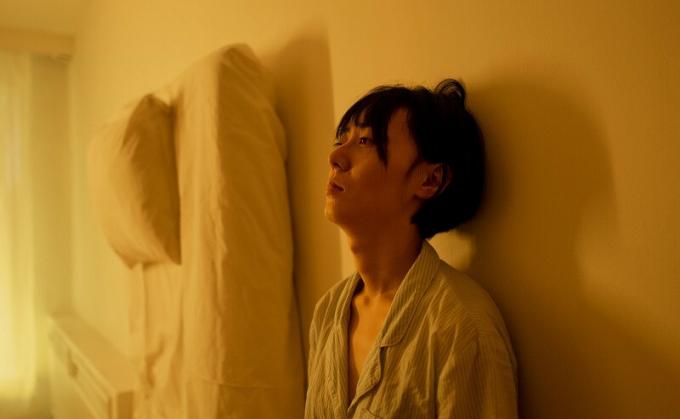Hwa-byung: symptoms, causes and treatment of this cultural syndrome
There are various mental disorders that have been classified as "cultural syndromes" which are syndromes psychosomatic that have been detected in some specific cultures or societies, such as the amok, which is originally from Indonesia; the koro, from China; or the hwa-byung, Korean, which is what we are going to talk about in this article.
The syndrome known as hwa-byung is a somatization disorder related to the difficulty that some people have in managing states of anger that they have come to feel in the face of injustice, so that by repressing feelings they can suffer physical and psychological symptoms (p. g., sadness, frustration or noticeable tiredness, among others).
In this article we will explain what hwa-byung syndrome consists of, what are its possible causes and about whether there is any treatment.
- Related article: "Cultural syndromes: what they are, what symptoms they present, and 7 examples"
Hwa-byung: What is this cultural syndrome?
Hwa-byung, also known as wool-hwa-byung (Hwabyeong or Hwapyŏng) is
a somatization disorder originating in Korea and closely linked to its culture.This can develop when a person is not able to handle the anger felt in the face of situations that he considers to be unfair, so the repression of their emotions will end up triggering the development of this syndrome and a series of both psychological and physical symptoms that are closely linked to it (for example, feelings of frustration, sadness, insomnia, fatigue, headache, etc.).
We can find this syndrome in different diagnostic manuals on international mental disorders such as the DSM or the ICD, among others, in the section that has dedicated to cultural syndromes, where other syndromes or mental disorders are found that are closely linked to the culture where they were discovered; although in recent years they have gradually aroused greater interest on the part of researchers and health professionals around various parts of the world.
Both the hwa-byung and the other cultural syndromes have been slow to be investigated by the international scientific community; however, these have become more important in recent decades due to the growth of cultural diversity in Western countries, as is the case of the United States. United States, a country in which it is very important to study cultural syndromes such as hwa-byung, since it is estimated that there are more than 2 million people of ethnic origin among its population. Korean.
- You may be interested: "What is Cultural Psychology?"
Most characteristic symptoms of hwa-byung
Among the detected and diagnosed cases of hwa-byung, a series of symptoms associated with this syndrome when it develops in people over a long period of time, giving rise to a series of symptoms, one or several of which may occur at the same time, such as the following:
- Sensation of frustration and constant anger (the most characteristic symptoms).
- Feelings of helplessness and melancholy.
- Difficulty sleeping or insomnia.
- Noticeable lack of energy or fatigue.
- Hypervigilance for fear of suffering something bad.
- Frequent headaches (headaches) and muscle aches.
- dizziness
- Noticeable lack of appetite.
- Tachycardias.
- Digestive problems.
- Feelings of restlessness.
- Warmth sensation.
- Chest tightness.
- Dry mouth and breathing difficulties.

As we have been able to verify, there are numerous physical and psychological symptoms that can develop when suffering from hwabyung syndrome, so this has aroused the interest of several researchers, giving rise to an increase in studies to respect. This has facilitated the detection of a greater number of cases, in such a way that this has given rise to more inquiries about possible treatments in order to alleviate the symptoms.
Notably, in a study of the hwa-byung, in which a series of brain scans were performed, they found a series of measurable traces in the brain as a consequence of having suffered from this syndrome, among which their observe lower levels of activity in brain areas that are directly involved in the control of impulses and emotions.
- Related article: "Folie à Deux (Shared Madness): The Strangest Cases"
Causes
There is research in this regard that estimates that hwa-byung could affect approximately 10,000 people in South Korea every year. The average profile of a person suffering from this syndrome is that of a middle-aged woman onwards with a low socioeconomic level.
On the other hand, they were able to observe that it was common for this syndrome to begin to develop in complicated moments in the lives of these people, such as a divorce process, marital problems or conflicts with other members of their family.
The predisposition to suffer from the hwa-byung syndrome due to the fact that it is not too accepted at a social level to externalize emotions, so it would be that tendency to internalize what can predispose and facilitate that it ends up triggering said syndrome, as well as it can favor its maintenance throughout the weather. In addition, this tendency to internalize emotions can make it difficult to seek psychological help.
Hwa-byung syndrome is a fairly complex mental disorder that could be caused by various psychosocial factors. In addition, as we had previously commented, it is a Korean cultural syndrome, and more specifically, it is linked to South Korea, since no data is shown with respect to North Korea.
In Western culture, the symptoms that are part of the hwa-byung syndrome could fit with a mood disorder, with components of anxiety, depression, stress, etc. It should be noted that this syndrome it has a high comorbidity with anger-related disorders, with major depressive disorder and also with generalized anxiety disorder.
- You may be interested: "Deliriums: what they are, types and differences with hallucinations"
Treatment
Since its discovery, hwa-byung syndrome has been treated mainly from the medical model, since despite the fact that patients suffering from this syndrome are aware of their psychogenic origin, they do not usually seek help from a psychologist or psychiatrist because in their culture, as is still the case today to a great extent part of the world, there is a certain reluctance among the general population to seek this type of help, considering that it is something that is not yet fully accepted socially.
Therefore, they are more likely to seek medical treatment for physical symptoms related to hwa-byung syndrome (eg. g., fatigue, muscle aches, headaches, etc.).
On the other hand, to treat the psychological symptoms of hwa-byung syndrome Other alternatives to psychological therapy that are more entrenched and socially acceptable within Korean culture are often used, such as traditional medicine (herbal medicine), acupuncture and even in some cases it has been decided to seek the help of shamans.
In research conducted with Koreans regarding the mental health problems they may suffer from, it was found that when they have a psychological problem they tend to deal with it by seeking informal help from people close to them such as their relatives and closest friends, instead of seeking help from mental health professionals, the latter option being taken into account as last resource.
But nevertheless, in recent years the demand for psychological help by professionals has been increasing, not being different in Korean culture, so cases of hwa-byung syndrome have already been treated through different treatments psychological therapies such as cognitive therapy, supportive therapies that follow a psychodynamic approach, and also psychological therapies based on reduction programs based on mindfulness, the latter of which demonstrated positive and encouraging results with regard to reducing symptoms of hwa-byung.
It should be noted that in 2006 a study was published that showed promising results about the use of a scale of the MMPI-2, a tool that has been widely used to assess personality and psychopathology, and which in this case was designed to assess the characteristics of hwa-byung. In this scale, important components related to this syndrome were analyzed, such as gastrointestinal symptoms, anger, feelings of hopelessness and general health.
However, despite the fact that the results obtained with the adaptation of a scale of the MMPI-2 to evaluate the hwa-byung were encouraging, more clinical studies are needed to allow further validation of this scale.

